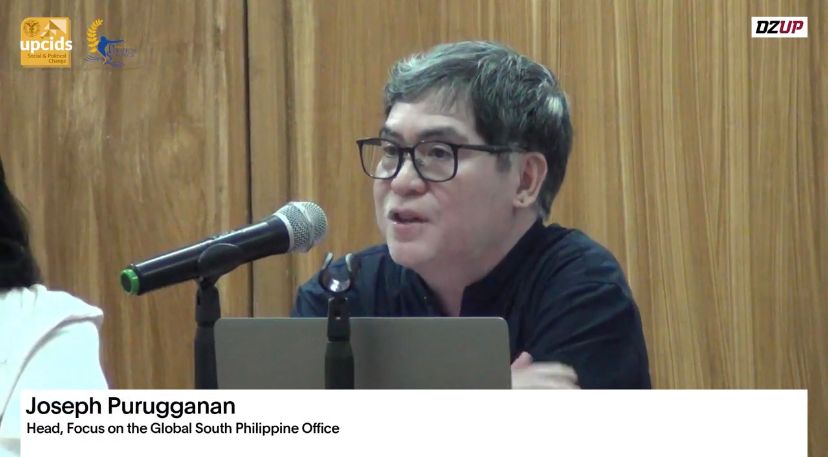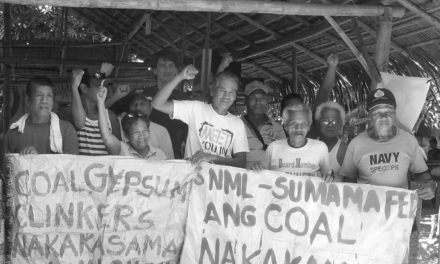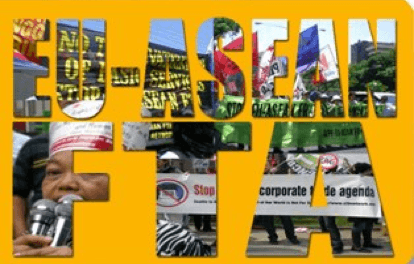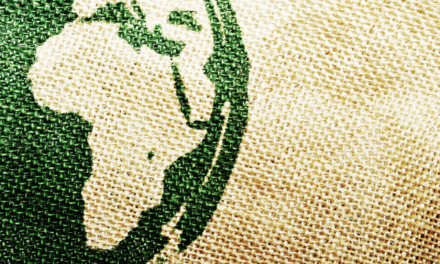It is important to start by looking at a way to frame the relationship between the Government and Civil Society. There are three main provisions in the Constitution that set the parameters for this relationship.
The first is in Article 2, which focuses on the declaration of principles and State obligations. Section 23 says; “The state shall encourage non-governmental, community-based, or sectoral organizations that promote the welfare of the nation.”
In Article 13, on social justice and human rights, two more provisions are important to highlight. Section 15 expounds on the duty of the State not just to encourage but also to respect the role of people’s organizations—that role being as mechanisms to “pursue and protect, within the democratic framework, their legitimate and collective interests and aspirations.”
And Article 16 which affirms “the right of the people and their organizations to effective and reasonable participation at all levels of social, political and economic decision-making.
So civil society organizations—NGOs and POs—should be encouraged by the state, their role as mechanisms for the pursuit of collective interests and aspirations shall be respected, and their right to participation at all levels of social, political and economic decision-making shall not be abridged.
The late CSO leader Isagani Serrano elaborated on this role of civil society and how and why CSOs matter in a paper on NGOs and GO-NGO relations in 2002: Gani emphasized the role of CSOs in influencing the course of development in general, by being an alternative voice or proxy for ‘conscience’ of the people. He also pointed to a fiscalizing role, when CSOs advance their critique of the way the government runs the economy and society.
Civil Society under Marcos-Duterte
It is against these parameters—the recognition by the State of the role and rights of CSOs as stated in the Constitution, as well as the track record if you may of how CSOs have functioned under our democratic system—by which we must view or gauge CSOs under the Marcos-Duterte administration.
There are two baselines, as a former CHR commissioner outlined, that serve as a reference for this engagement with the now one year old government.
The first is the experience under the Marcos dictatorship, and the second under the authoritarian Duterte administration.
History of Antagonism and Resistance
According to an assessment of Philippine civil society by the Asian Development Bank, “Ferdinand Marcos, who became President in 1965, envisioned a “new society” in which there was little space for civil society and no tolerance for advocacy NGOs. His administration became increasingly associated with the suppression of civil, human, and political rights.”
Under the repressive regime, as the ADB report further expounds: “ organizations either fled underground by joining the armed struggle of the National Democratic Front or sought shelter from Marcos’ security forces by affiliating with a university or religious institution”
Civil society came out and played an active role in key mobilizations both at the local and national levels that served as a build up to or culminated with the EDSA uprising that ousted Marcos in 1986.
The post EDSA period is an altogether unique period in CSO and Government relations but perhaps that can be reserved for another discussion. Suffice to say in order to complete the narrative, this period can be characterized as a period of growth where the number of CSOs grew and the areas of operations expanded; but it is also a period of splits, of division- along ideological lines, along the lines of political alliances, etc.
Which then leads us to the second baseline: Duterte. Dutertismo, Duterte’s brand of pro-corporate, strong-man style governance was characterized by relentless attacks against democratic institutions including NGOs and civil society, misogyny, a militarized pandemic response, extra- judicial killings extra-judicial killings or EJKs and the violent war on drugs, the demonization of human rights and hr defenders, red tagging and terror tagging, institutionalized repression under the anti-terror law, and criminalization and weaponization of the land rights, environmental and indigenous people’s rights struggles.
These two baselines also form the basis of the electoral engagement of CSOs during the 2022 elections. The broad human rights movement In Defense of Human Rights and Dignity Movement or IDEFEND’s electoral agenda for example called for regime change–a demand to move away from a regime characterized by the demonization of human rights and threats to human rights defenders, and towards greater accountability; a call to stop the democratic slide and defeat Dutertismo; and a call for “governance that is democratic, inclusive, accountable and compassionate. A kind of governance where people are seen as critical movers of solutions and remedies, and their communities enabled to participate effectively in crisis response and peace building; and where, echoing the State’s obligation under the Constitution, civil society is strengthened as partners for development, and not tagged as enemies of the state.”
We all know what happened in the 2022 elections. It was a huge victory for Marcos and Duterte tandem, giving them a huge mandate to govern from the electorate.
Challenges to CSOs
The first challenge is figuring out how to move forward from the election defeat, and challenge the Marcos-Duterte agenda while advancing the progressive agenda under an administration with a huge electoral mandate.
The second challenge is what Rappler columnist John Nery referred to as the “fog of normalization”. “The sense of crisis that had been so powerful and clarifying during the election period has dissipated into an ambiguous, is-it-really-back-to-normal, unavoidable haze.” Normalization has been a strong agenda of the Marcos administration. His many trips abroad and to some extent as well the government’s re-engagement in international bodies like UNHRC, all carry the central message that there is new leadership in the Philippines, Duterte is out, and it’s now time for things to normalize, to be back to business as usual.
We met for example some progressive Members of the European Parliament when they visited the Philippines for a mission in February this year, and they reported on this as well. Normalization means among other things, a greater willingness to engage the new government, particularly on economic issues- like trade and investments. Unfortunately, normalization also means a downplaying or de-prioritization of the human rights agenda.
This is the challenge human rights groups and CSOs in general have to confront. How to continue to deliver the message that the multiple crises we face- whether on human rights, on food and agriculture, on climate- are far from over, and that the situation should not be normalized. That the EJKs continue, there is continuing repression and attacks vs human rights defenders; and that the corporate driven development agenda continues to be the centerpiece.
And finally, how to remove the fog or lift the veil of normalization and begin to identify and define clear points of critical engagement and resistance under the new administration.
People’s’ assessment of BBM’s SONA
In the first State of the Nation Address (SONA) of the new administration, we saw a glimpse already of where this new normal will be taking us. I’ll be quoting from a few CSOs who have articulated the areas of concern from the first SONA.
From my own organization Focus on the Global South– we pointed out that in BBM’s first SONA, he was not addressing the entire nation but rather the local and international business community, and the political and economic elites of this country.
Lilak, Purple Action for Indigenous Women’s Rights (LILAK) highlighted in their SONA statement in 2022 how on the one hand indigenous people’s were invisible in the SONA, and yet the gaze of the government was on their ancestral lands as areas of investments.
In their SONA and post SONA statements workers under the NAGKAISA Labor Coalition stressed the need for the “government to allow the labor and progressive movements to be involved in making the decisions, setting the policies, and identifying ways forward to collectively overcome our present situation.” The progressive labor center Sentro ng mga Nagkakaisa at Progresibong Manggagawa (SENTRO) on the other hand emphasized in a more recent statement on labor day 2023, the workers demand “that the Marcos administration seriously engage the workers movement in crafting the government’s labor policy to ensure that the labor agenda will be seriously pursued.”
While CSOs and movements continue to advocate for the government to recognize their roles as stakeholders of development and not as enemies, it is the corporate sector that has been given time and again the driver’s seat.
One of his first acts as president, soon after his first SONA, is the creation of the Private Sector Advisory Council (PSAC) to help strengthen collaboration between the public and private sectors. CEOs and presidents of the biggest corporations and the billionaires that lead them have been given the task of developing and recommending the agenda around critical areas of the economy. Sabin Aboitiz of Aboitiz Group is the lead convenor and also the lead on infrastructure, Century property on agriculture, Ayala health on health, and so on..
SONA from a Social Justice Lens
In the invitation to speak in this forum, I was asked whether I find it important for example that CSO be mentioned in BBM’s 2nd SONA. Rather than that I propose instead a social justice and human rights parameter in understanding the SONA and gauging the speech as a blueprint of things to come.
Let us listen to the SONA and reflect on these social justice principles of access to resources, equity, diversity, participation and human rights. Let us gauge whether his words and actions are moving us closer to the attainment of social justice or moving us farther away,
On access to resources for example, let’s reflect on the government’s actions with respect to resource conflicts in Manila bay and the struggle of small fisherfolks to sustain their livelihoods amid the onslaught of reclamation and sea bed quarrying projects.
On equity, let’s think about the P40 minimum wage increase for the national capital region (NCR), which might find space in the President’s speech, and reflect on what labor is saying on this, how this amount is not enough as they continue to struggle for living wages.
We can also think about the new agrarian emancipation law, recently signed by BBM which would again we expect to be highlighted in the SONA, a law that Finance Secretary Benjamin Diokno referred to as a social justice measure, and reflect on the question will farmers really benefit from this measure given the sorry state of Agrarian reform implementation?
On diversity, let’s reflect on the SOGIE equality bill and the other anti-discrimination bills that are finding it hard to leave the congressional committees and work their way into the legislative process.
Lets also reflect on the continuing attacks against non-moro indigenous people’s (NMIP) in the Bangsamoro Autonomous Region in Muslim Mindanao (BARMM) and their continuing struggle to push for an NMIP code that would further recognize their rights already enshrined in IPRA.
On participation, let’s reflect on the demands of small fishers for a say in the rehabilitation of Manila bay or the demand of farmers to be consulted on RCEP and other trade agreements that would impact their livelihoods.
And finally on human rights, let’s reflect on whether or not the BBM administration is doing something to address the human rights crisis in the country, a crisis characterized by the Office of the High Commissioner for HR as widespread and systematic. We look to see whether there’s progress on accountability and reforms.
Let’s reflect on the human rights issues of continuing EJKs from the war on drugs. As Human Rights Watch pointed out “Marcos has yet to rescind the orders and other policy statements that underpinned duterte’s “war on drugs. Let’s also reflect on the Marcos administration’s continued refusal to cooperate with the International Criminal Court (ICC) over the case of crimes against humanity related to Duterte’s drug war; on enforced disappearances and arbitrary arrest of activists; red -tagging and terror-tagging continues; criminalization of HRDs through the use of strategic lawsuits against public participation or SLAPP cases; and on the pursuit of an economic agenda that violates economic, social and cultural rights.
Solidarity and Resistance
On a positive note, we can and should also report that the resistance continues and that movements are coming together. We saw this during labor day when workers marched under the banner of All Philippines Trade Union, or the coming together of various agricultural stakeholders and trade justice advocates during the RCEP debates, and the continuing solidarity among indigenous groups under 1Sambubungan, in the face of relentless attacks.
The challenges are huge, especially under the veil of normalization, where civil society must continue to assert peoples rights, demand a role in building a more just society; continue to act as fiscalizers and alternative voices or conscience, speaking truth to power.#
—-
[1] Presented at the Roundtable discussion Reality vs Expectation:BBM’s 2023 SONA. organized by UP Center for Integrative and Development Studies and the UP Department of Political Science. 17 July 2023. To watch the discussion in its entirety, you can visit the link here.










